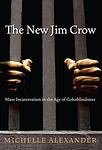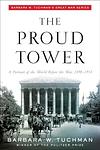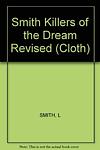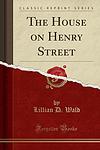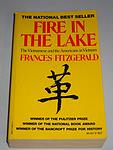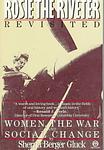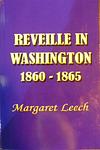The Greatest "American History" Books of All Time Written by Women
Click to learn how this list is calculated.
This collection epitomizes the pinnacle of literature authored by women, aggregating selections from 300 'best of' book lists into a definitive guide to the most acclaimed works by female writers. This aggregation reflects a comprehensive evaluation of literary achievements, offering a rich tapestry of perspectives and voices. For a deeper understanding of our selection methodology and the rigorous criteria behind these rankings, please visit our rankings page.
Genres
The "American History" category encompasses a broad range of books that delve into the events, figures, and forces that have shaped the United States from its pre-colonial days to the present. This genre includes works on pivotal moments such as the American Revolution, Civil War, and civil rights movements, as well as studies of political, social, and cultural developments across various eras. It covers biographies of influential leaders, analyses of policy changes, and examinations of societal shifts. Whether providing comprehensive overviews or focusing on specific incidents or decades, books in the American History category aim to illuminate the complexities of the nation's past, offering readers insights into the events that have defined the American experience and the context for its ongoing evolution.
Date Range
Reading Statistics
Click the button below to see how many of these books you've read!
Download
If you're interested in downloading this list as a CSV file for use in a spreadsheet application, you can easily do so by clicking the button below. Please note that to ensure a manageable file size and faster download, the CSV will include details for only the first 500 books.
Download-
1. The Death and Life of Great American Cities by Jane Jacobs
This book is a critique of 1950s urban planning policy, which it holds responsible for the decline of many city neighborhoods in the United States. The author argues that modernist urban planning rejects the city, because it rejects human beings living in a community characterized by layered complexity and seeming chaos. The book introduces groundbreaking ideas about how cities function, evolve and fail, providing a new perspective on the essentials of vibrant city life. The author also provides concrete examples of the unexpected consequences of urban renewal.
-
2. Incidents in the Life of a Slave Girl by Harriet Jacobs
This book is a poignant autobiography that depicts the life of a young woman born into slavery in the southern United States in the early 19th century. The narrative provides a harrowing account of her childhood and adolescence, marked by abuse and exploitation. In her desperate quest for freedom, she spends seven years in a tiny attic, hiding from her oppressive master. The narrative serves as a powerful critique of the brutalities of slavery, and a testament to the author's indomitable spirit and pursuit of freedom.
-
3. The Immortal Life of Henrietta Lacks by Rebecca Skloot
The book tells the story of Henrietta Lacks, a poor African American tobacco farmer whose cells, taken without her knowledge in 1951, became one of the most important tools in medicine, vital for developing the polio vaccine, cloning, gene mapping, and more. Henrietta's cells have been bought and sold by the billions, yet she remains virtually unknown, and her family can't afford health insurance. The book explores the collision between ethics, race, and medicine; of scientific discovery and faith healing; and of a daughter consumed with questions about the mother she never knew.
-
4. Twenty Years at Hull-House by Jane Addams
"Twenty Years at Hull-House" is a memoir that recounts the author's experiences co-founding and running a settlement house in a poverty-stricken, immigrant neighborhood in Chicago. The book details the struggles and triumphs of the community as they navigate social, economic, and cultural challenges, while also offering insight into the author's own evolution as a social reformer. Throughout, the author emphasizes the importance of empathy, understanding, and community engagement in addressing social inequality.
-
5. The Warmth Of Other Suns by Isabel Wilkerson
"The Warmth of Other Suns" is a powerful and deeply moving narrative that chronicles the Great Migration, a significant event in American history that saw millions of African Americans leave the South in search of better opportunities and freedom from racial oppression. Through the compelling stories of three individuals, the book explores the challenges, triumphs, and sacrifices made by these courageous migrants as they embarked on a journey to find a new life in the North and West, ultimately reshaping the social and cultural landscape of America.
-
6. Team of Rivals: The Political Genius of Abraham Lincoln by Doris Kearns Goodwin
This book explores the political acumen of Abraham Lincoln, focusing on how he assembled his cabinet from political adversaries, many of whom initially dismissed him for his perceived lack of experience and ungainly appearance. The narrative delves into how Lincoln used his rivals' talents to navigate the tumultuous times of the Civil War, maintaining unity and leading the nation towards the abolition of slavery. It underscores Lincoln's extraordinary ability to turn rivals into allies, demonstrating his leadership and his profound impact on American history.
-
7. A Voice From The South by Anna Julia Cooper
"A Voice From The South" is a seminal work in African American literature and feminist thought, written by a prominent educator and scholar at the end of the 19th century. The book is a collection of essays that address a range of topics, including the education and empowerment of black women, racial uplift, and the intersection of race and gender. The author argues for the critical role of black women in the struggle for racial equality, advocating for their access to education and broader societal participation. She emphasizes the importance of their voices in the fight against oppression and in the shaping of a more just and equitable society. The work is notable for its early articulation of black feminist perspectives and its influence on later civil rights and feminist movements.
-
8. Coming Of Age In Mississippi by Anne Moody
The book is a powerful autobiographical account of a young African American woman's life growing up in rural Mississippi during the 1940s and 1950s. It vividly portrays the struggles with poverty, racism, and sexism in a deeply segregated society, as well as her burgeoning activism. The narrative follows her journey from childhood, through her college years, and into her involvement with the Civil Rights Movement, offering a personal perspective on the fight for racial equality in the United States. Her story is one of courage and determination, reflecting the broader experiences of many black Americans during a pivotal era in American history.
-
9. The New Jim Crow by Michelle Alexander
"The New Jim Crow" is a thought-provoking and eye-opening book that examines the deeply ingrained racial bias within the American criminal justice system. Drawing on extensive research and personal anecdotes, the author explores how the War on Drugs has disproportionately targeted and marginalized Black communities, leading to a modern-day system of racial control and oppression. This powerful critique challenges readers to confront the systemic racism that continues to perpetuate inequality and injustice in the United States.
-
10. The Proud Tower by Barbara Tuchman
This historical work delves into the tumultuous period preceding World War I, capturing the social, political, and cultural landscape of the world from the 1890s through the early 20th century. The narrative weaves through various countries and influential figures, examining the contrasts between the wealth of the elite and the struggles of the working class, the rise of anarchism, and the complexities of pre-war diplomacy. It paints a vivid picture of an era marked by both grandeur and the simmering tensions that would eventually lead to one of the most devastating conflicts in human history.
-
11. A Midwife's Tale by Laurel Thatcher Ulrich
"A Midwife's Tale" is a historical account of a midwife's life in the late 18th and early 19th centuries, based on her detailed diary entries. The book offers a unique perspective on the daily life, medical practices, and social and economic conditions of the time, while highlighting the significant role that women played in the community, despite their limited rights and opportunities. The narrative also provides a rare insight into the realities of childbirth and women's health during this period.
-
12. Killers of the Dream by Lillian Smith
"Killers of the Dream" is a non-fiction book that examines the roots of racism in the American South, particularly in the author's home state of Georgia. The author argues that segregation is not only harmful to black people, but also to whites, as it distorts their view of reality and their own humanity. The book explores the psychological, social, and cultural effects of racism, and calls for an end to racial discrimination and segregation.
-
13. The House on Henry Street by Lillian D. Wald
"The House on Henry Street" is a memoir by a prominent social worker and public health advocate, detailing her experiences and work in the Lower East Side of New York City in the early 20th century. The book chronicles her establishment of a settlement house in the area, which provided a range of services including healthcare, education, and employment assistance to the community. The narrative offers a poignant insight into the struggles and resilience of the immigrant population during this period, and the author's pioneering role in public health nursing and social reform.
-
14. Woman Suffrage and Politics: The Inner Story of the Suffrage Movement by Carrie Chapman Catt
This book provides an in-depth look at the women's suffrage movement, detailing the political strategies, key players, and significant events that led to women gaining the right to vote in the United States. It offers a comprehensive history of the movement from its early beginnings to its ultimate victory, highlighting the tireless efforts of the women who fought for equality. The book also examines the political landscape of the time, revealing the challenges and opposition the suffragettes faced.
-
15. Thirty Years As A Slave And Four Years In The White House by Elizabeth Keckley
This memoir offers a poignant and powerful account of an African American woman's life journey from the harsh realities of enslavement to her emancipation and subsequent role as a successful dressmaker and confidante to the First Lady of the United States during the Civil War era. The narrative provides a unique insider's perspective on daily life in the White House, as well as intimate observations of presidential family dynamics during one of the nation's most tumultuous periods. Her story is one of resilience and determination, highlighting the struggles and achievements of a woman who navigated the complex intersections of race, gender, and politics in 19th-century America.
-
16. Crusade For Justice by Ida B. Wells
"Crusade for Justice" is an autobiography that chronicles the life and work of a pioneering African American journalist and activist who bravely led an anti-lynching crusade in the United States during the late 19th and early 20th centuries. The book details her personal experiences with racial discrimination and her tireless efforts to document and fight against the injustices faced by African Americans. Her narrative provides a powerful insight into the civil rights struggles of her time and her unwavering commitment to justice and equality, making her one of the most significant figures in American social reform.
-
17. Women In The Resistance And In The Holocaust by Vera Laska
This book provides a poignant and comprehensive historical account of the courageous roles played by women during one of history's darkest periods. It delves into the diverse and often overlooked contributions of female fighters, partisans, and activists who stood against the oppressive forces of the Nazi regime during World War II. Through personal narratives, testimonies, and documented events, the book highlights the resilience, bravery, and sacrifices of these women, who not only participated in the resistance movement but also endured the horrors of the Holocaust, offering a vital perspective on their indispensable role in the struggle for freedom and justice.
-
18. Killing The Black Body by Dorothy E. Roberts
This book is a critical examination of the ways in which the reproductive rights of African American women have been controlled and violated throughout American history. It delves into the intersection of race, gender, and class, revealing how black women's bodies have been subjected to coercive policies and practices, from the era of slavery to contemporary issues of forced sterilization and unequal access to reproductive healthcare. The work challenges readers to confront the systemic racism embedded in America's reproductive policies and to recognize the ongoing struggle for autonomy and justice faced by black women in the realm of reproductive freedom.
-
19. Fire in the Lake by Frances FitzGerald
This book is an in-depth analysis of the Vietnam War from the perspective of the Vietnamese people and culture. The author explores the historical, cultural, and social factors that contributed to the conflict, providing a comprehensive understanding of the war beyond the American involvement. It delves into the roots of Vietnamese nationalism, the impact of French colonialism, and the ideological differences between North and South Vietnam, giving the reader a nuanced view of this complex period in history.
-
20. Ella Baker And The Black Freedom Movement by Barbara Ransby
This book is a comprehensive biography that chronicles the life and influence of a prominent civil rights activist who played a pivotal role in some of the most influential organizations of her time, including the NAACP, Martin Luther King Jr.'s Southern Christian Leadership Conference, and the Student Nonviolent Coordinating Committee. It delves into her commitment to grassroots organizing and participatory democracy, showcasing her belief in the power of the people to instigate social change. The narrative highlights her behind-the-scenes work, her emphasis on collective leadership, and her dedication to fighting racial and economic injustice, making a strong case for her as one of the most important, yet often overlooked, leaders of the civil rights movement.
-
21. Rosie The Riveter Revisited by Sherna Berger Gluck
This book offers a historical exploration of the lives and legacies of the women who stepped into traditionally male-dominated industrial roles during World War II, symbolized by the iconic figure "Rosie the Riveter." Through a series of interviews and personal narratives, the work delves into the experiences of these women, examining the challenges they faced, the societal expectations of the time, and the impact of their wartime labor on gender roles. It also addresses the aftermath of the war, including the push for women to return to domestic life, and the long-term effects on the feminist movement and labor rights. The book serves as both a tribute to these trailblazing women and a critical reflection on the evolution of women's work and rights in America.
-
22. Reveille in Washington by Margaret Leech
"Reveille in Washington" is a vivid portrayal of Washington D.C. during the American Civil War. The book offers a detailed account of the city's transformation from a sleepy Southern town to a bustling hub of war activity, filled with soldiers, spies, bureaucrats, and freed slaves. The narrative also explores the social, political, and military life of the city during this tumultuous period, providing a unique perspective on the war and its impact on the nation's capital.
-
23. The Red Record by Ida B. Wells
The book in question is a pioneering work of investigative journalism and a searing indictment of lynching in the post-Civil War United States. The author, a prominent African American journalist and activist, meticulously documents the horrific practice of lynching, providing detailed accounts of specific incidents and statistical analysis to debunk the common justifications for such violence. The work exposes the systemic racism and injustice that African Americans faced, and it was instrumental in raising public awareness and galvanizing anti-lynching activism. The author's bravery in confronting this issue head-on, despite threats to her own life, underscores the book's importance as a historical document and a testament to the struggle for civil rights.
-
24. Pride Of Family by Carole Ione
"Pride of Family" is a non-fiction work that delves into the rich and complex history of an African American family across four generations, from the antebellum era through the civil rights movement. The narrative weaves together personal memoir, historical documentation, and oral testimony to explore the lives of both free and enslaved ancestors, revealing the intricate social fabric of black life in America. The author embarks on a journey of self-discovery, unearthing stories of resilience, dignity, and survival, while confronting the legacies of slavery and racial identity. This book is a testament to the endurance of family bonds and cultural heritage amidst the challenges posed by a society deeply scarred by racial divisions.
-
25. The Bully Pulpit: Theodore Roosevelt, William Howard Taft, And The Golden Age Of Journalism by Doris Kearns Goodwin
This historical work delves into the vibrant era of early 20th-century America, exploring the close friendship and eventual political rivalry between two presidents, Theodore Roosevelt and William Howard Taft. It also highlights the crucial role of muckraking journalists who, with the support of Roosevelt's bully pulpit, exposed corruption and galvanized public opinion. The narrative weaves together the personal and political dynamics that shaped the Progressive Era, showcasing how these leaders and the press collectively brought about significant reforms and forever transformed the American political landscape.
Reading Statistics
Click the button below to see how many of these books you've read!
Download
If you're interested in downloading this list as a CSV file for use in a spreadsheet application, you can easily do so by clicking the button below. Please note that to ensure a manageable file size and faster download, the CSV will include details for only the first 500 books.
Download







